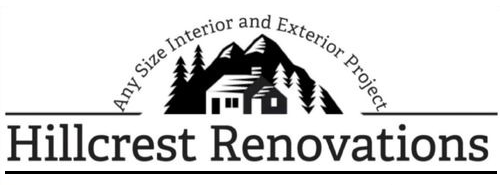Planning Your Home Renovation Budget: A Contractor's Perspective
Home renovation projects represent significant investments that should enhance both your daily living experience and property value. Understanding how to budget effectively from a contractor's perspective helps ensure your project achieves its goals while avoiding common financial pitfalls that can derail even well-planned renovations.
Understanding True Project Costs
Renovation budgets extend beyond material and labor costs to include permits, inspections, temporary living arrangements, and contingency funds for unexpected discoveries. Many homeowners underestimate these additional expenses, leading to budget stress midway through projects.
A realistic budget typically allocates 60-70% for materials and labor, 10-15% for permits and professional fees, and 15-20% for contingencies. This distribution provides flexibility to handle unforeseen complications without compromising project quality or timeline.
Prioritizing Improvements for Maximum Impact
Strategic renovation prioritization focuses spending on improvements that provide the greatest combination of personal enjoyment and resale value. Kitchen and bathroom updates consistently rank among the highest-impact investments, while cosmetic improvements like fresh paint offer excellent return-on-investment at lower cost.
Consider your family's long-term plans when prioritizing projects. If you'll remain in your home for many years, prioritize improvements that enhance daily comfort. For shorter-term residency, focus on updates with broad market appeal and strong resale potential.
Material Selection Strategy
Balancing quality with budget requires understanding which materials justify premium investment versus areas where mid-range options provide adequate performance. Invest in high-quality materials for high-use areas like flooring, countertops, and fixtures that affect daily function and durability.
For items with shorter replacement cycles or lower visibility, mid-range materials often provide excellent value. The key is making informed decisions based on use patterns, expected lifespan, and impact on overall project aesthetics.
Labor vs. DIY Considerations
While DIY work can reduce labor costs, evaluate the true savings after considering tool purchases, time investment, and potential rework costs if mistakes occur. Some tasks require professional expertise for safety, code compliance, or warranty protection.
Reserve DIY efforts for projects matching your skill level and available time. Professional installation often proves more cost-effective for complex work requiring specialized tools, permits, or technical expertise that ensure lasting results.
Timing and Seasonal Factors
Project timing affects both costs and contractor availability. Peak construction seasons typically bring higher labor costs and longer lead times for materials and scheduling. Planning exterior work during optimal weather windows prevents delays that can increase overall project costs.
Off-season scheduling often provides cost advantages and better contractor availability, though weather limitations may affect some exterior work. Balance cost savings against timeline constraints and personal scheduling needs.
Financing Options and Payment Planning
Multiple financing options exist for renovation projects, each with distinct advantages depending on project scope and personal financial situation. Home equity lines of credit often provide favorable interest rates for substantial projects, while personal savings eliminate interest costs entirely.
Avoid contractors requiring large upfront payments or cash-only transactions. Reputable professionals typically request modest deposits with progress payments tied to completed work milestones, protecting both parties throughout the project.
Contingency Planning
Every renovation uncovers surprises ranging from outdated wiring to structural issues requiring immediate attention. Experienced contractors budget contingency funds to address these discoveries without halting progress or compromising safety.
Common contingency needs include upgrading electrical or plumbing systems to current codes, addressing water damage discovered during demolition, or modifying plans based on structural discoveries. Planning for these possibilities prevents budget emergencies.
Getting Accurate Estimates
Quality estimates require detailed project specifications and thorough site evaluation. Vague descriptions lead to incomplete estimates that rarely reflect actual project costs. Provide contractors with specific material preferences, finish selections, and performance expectations.
Compare estimates carefully, ensuring each covers the same scope of work and material quality. The lowest bid isn't always the best value if it omits necessary work or specifies inferior materials that require early replacement.
Long-term Value Considerations
Quality renovations provide value beyond immediate enjoyment through reduced maintenance costs, improved energy efficiency, and enhanced resale potential. Working with experienced remodeling contractors ensures investments deliver lasting value through proper material selection and installation techniques.
Consider maintenance requirements when evaluating options. Premium materials with longer lifespans often provide better long-term value despite higher initial costs, especially for elements that are expensive or disruptive to replace.
Professional general contracting services help navigate these budget considerations while ensuring projects meet quality standards and local code requirements. Experienced contractors provide realistic cost projections and help prioritize spending for maximum impact.
At Hillcrest Renovations, our 18 years of experience includes helping homeowners develop realistic budgets that achieve their renovation goals. We provide detailed estimates, explain cost factors clearly, and work within established budgets while maintaining quality standards. Our veteran and senior citizen discounts help make quality renovations more accessible.
Ready to develop a comprehensive renovation budget for your project? Contact us at (908) 268-7766 for your free consultation. We'll assess your project goals, discuss budget priorities, and provide detailed estimates that help you make informed decisions about your renovation investment.
